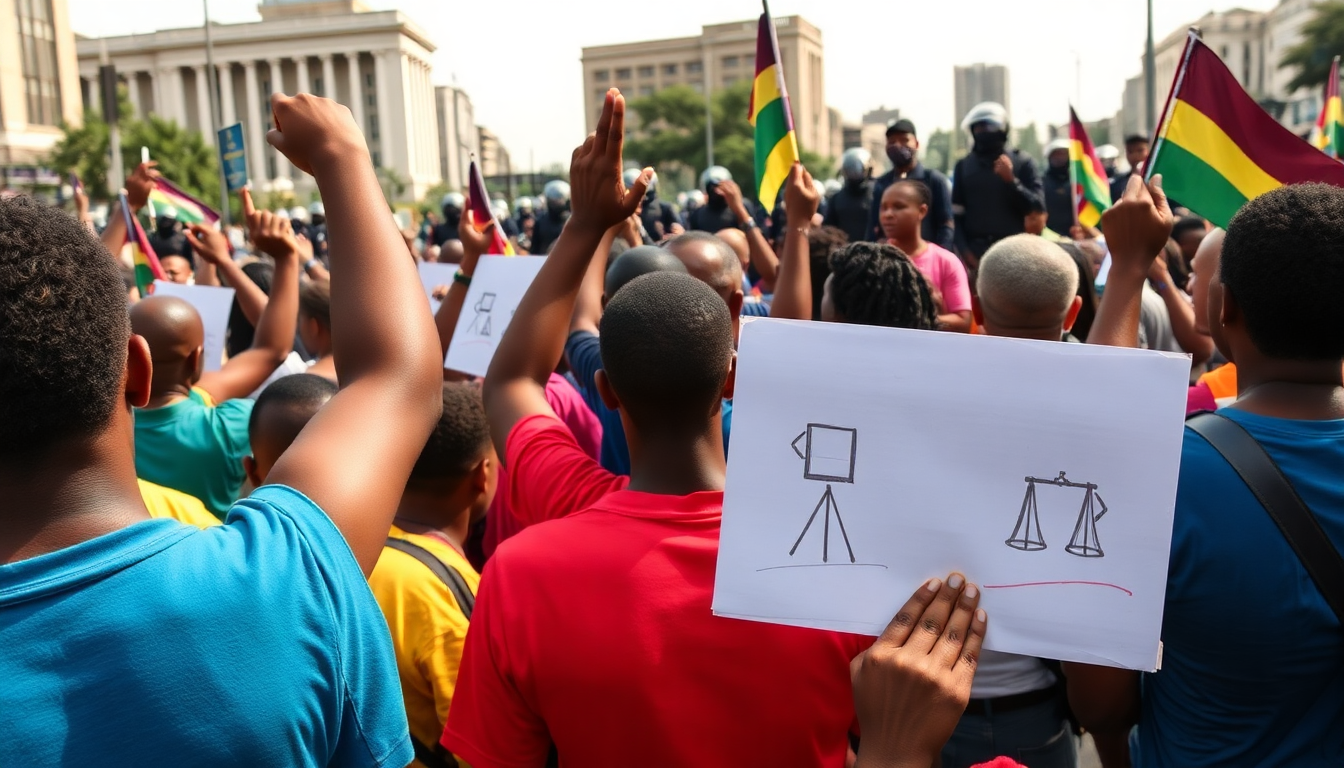Table of Contents
In the chaotic streets of Nairobi, a familiar scene unfolds: protests erupting once again, fueled by the suspicious death of a blogger who found himself on the wrong side of the law—or rather, on the wrong side of a police officer’s ego. Alfred Ojwang, only 30, was arrested for the crime of defamation, which in the twisted world of Kenyan policing seems to carry a death sentence. The details surrounding his demise are murky, like the conscience of those responsible.
Unraveling the mystery of Alfred Ojwang’s death
Ojwang was taken into custody after being accused of insulting a high-ranking police official. The police said he was found unconscious in his cell, but forensics painted a different picture; one filled with evidence of serious injuries and signs of neck compression. It’s almost as if the police have a handbook on creative storytelling when it comes to dodging accountability. How can one trust the very system meant to protect them when it’s busy covering its tracks?
Public outcry and the government’s response
Amidst the outrage, President William Ruto’s comments seemed a tad too rehearsed. “This tragic occurrence is heartbreaking and unacceptable,” he proclaimed. Heartbreaking? More like a tragic comedy where the audience knows the punchline is a farce. As hundreds took to the streets, hurling accusations at a system that has failed them time and again, police responded with tear gas, a classic move in their playbook of oppression.
The personal toll: A father’s grief
Meshack Ojwang, Alfred’s father, reflected on his son’s aspirations, a high school teacher turned charcoal entrepreneur, who was never one to stir trouble. His heart-wrenching story exemplifies the tragic loss of potential. How many more fathers will have to grieve under the weight of a system that seems designed to crush rather than uplift? This isn’t just about one man; it’s about a society plagued by fear and corruption.
A history of violence and impunity
Last year alone, the Kenyan police’s brutal tactics resulted in the deaths of at least 60 people during protests. The youngest victim? A 12-year-old boy. It begs the question: is this the legacy Kenya wants to uphold? The public’s fury is palpable, yet the cycle of violence continues, a grotesque dance between power and oppression. Activists are left wondering: where do we go from here? The opposition is now part of the government, leaving them feeling like outcasts in a game rigged against them.
The international perspective
While Kenya is celebrated as a beacon of stability in a tumultuous region, the reality on the ground tells a different story. The US may have rolled out the red carpet for President Ruto, but behind the facade lies a nation grappling with systemic violence and a culture of impunity. What would it take for the world to see beyond the polished narratives? The claims of police misconduct are piling up, with a mere 33 convictions out of over 10,000 investigations. It’s almost laughable—if it weren’t so tragically disheartening.
Demanding accountability
In the aftermath of Ojwang’s death, calls for accountability grow louder. Who is truly in charge here? Who are the officers that feel emboldened to silence dissent with violence? As the police reform working group demands the resignation of those implicated, the urgency for change has never been clearer. Yet, will it fall on deaf ears? The people of Kenya deserve better than a government that turns a blind eye to injustice.
A look to the future
As protests continue to unfold, one can’t help but wonder if this will finally be the turning point. Will Kenyans unite to demand the justice that has eluded them for far too long? Or will this just be another chapter in a long history of broken promises? The world is watching, and it’s about time the Kenyan authorities realize that their actions—or lack thereof—have consequences. The tragedy of Alfred Ojwang should serve as a wake-up call, but whether it will be heeded remains to be seen.


